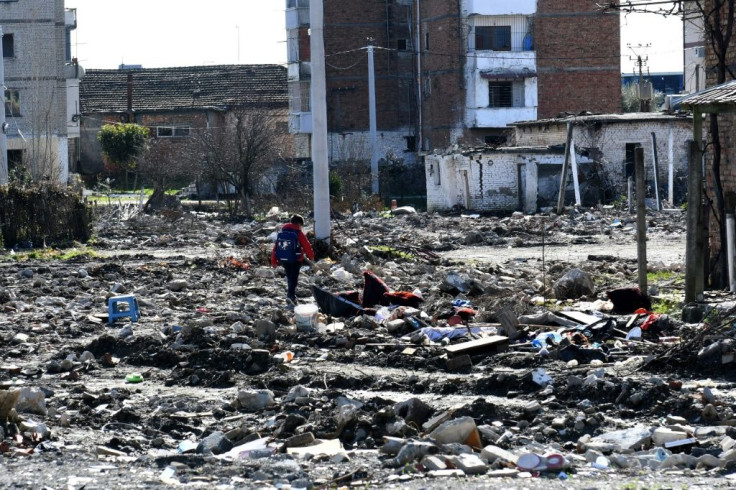Donors Pledge 1.15 Bn Euros For Albania Quake Recovery

International donors on Monday pledged 1.15 billion euros ($1.25 billion) to help Albania recover from a powerful earthquake last year, the EU chief announced, more than double the sum expected by Tirana.
Albanian Prime Minister Edi Rama said the sum -- which exceeds the total recovery bill of 1.08 billion euros assessed by the UN -- was "beyond my wildest imagination", having begun the day hoping for pledges of only 400 million euros.
The money will help the impoverished Balkan state rebuild and recover after the 6.4-magnitude quake which hit in November, killing 51 people and leaving 17,000 homeless.
"Good news for the people of Albania: We've surpassed our target for the reconstruction of Albania and reached a total of 1.15 billion euros, incl. 400 million euros in EU contributions," European Commission President Ursula von der Leyen tweeted.
"I'm overwhelmed by the support. Once again Europe stands together when it matters most!"
European states and institutions contributed, along with other countries including Turkey and the United Arab Emirates as well as international financial institutions.
"I am so happy and I am so so humbled by all of this," Rama said.
"We need now not to fail our friends and to make reconstruction in Albania a stunning example."
Given Western concerns about rife corruption in Albania, Rama said he had asked the United States to put its contribution into an "academy of transparency" to ensure the reconstruction money was not misused.
"We'll go through the necessary pains to make sure every penny of European taxpayers... will be spent well," he said.
Part of the reason the quake caused so much damage, experts say, was the scourge of illegal construction, which has seen builders and engineers in the former communist state flout safety codes for decades.
Rama said "what we reconstruct should be better than what we lost", suggesting that new earthquake resistance and environmental standards could be imposed.
Before the pledge meeting, Albanian expectations had been dampened by what Rama called a "political earthquake" in October, when three EU states blocked Tirana from starting membership talks to join the bloc -- the second such delay in less than six months.
France -- which led the Netherlands and Denmark in October's veto -- softened its opposition at the weekend after the European Commission, the bloc's executive, proposed a tougher and more political admissions process for new members.
French President Emmanuel Macron said that if a commission report on Albania and fellow hopeful North Macedonia next month confirms enough progress on reforms, he would be ready to agree to start the long accession process.
"They speak about dates and we are like lovers that wait for the date to get married and then the other side don't show up," Rama said.
"I'm expecting nothing. If it will come, it will be a great joy, if it will not come we continue with more stubbornness and with more willingness to do what we have to do and to prove them wrong."
© Copyright AFP {{Year}}. All rights reserved.





















